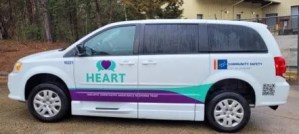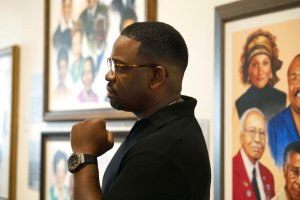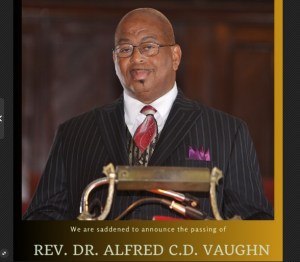By Alexa Spencer,
Word in Black
This story is part of “All Those ‘Racial Reckoning’ Promises,” Word In Black’s series exploring the pledges made to the Black community in the wake of the death of George Floyd, and what organizations and leaders can still do now to promote racial equity and justice.
Dialing 9-1-1 has taken on a new meaning for residents whose cities dispatch therapists in response to mental health crises instead of — or in addition to — police.
The U.S. Substance Abuse and Mental Health Services Administration recommended all Americans have access to these mobile crisis teams in early 2020, just months before the murder of George Floyd by police.
Floyd’s city, Minneapolis, Minnesota, launched a behavioral crisis response program over a year after his murder. Led by Canopy Mental Health & Consulting, a Black-owned and women-led organization, the unarmed team responded to over 3,300 calls within the first six months.
“Two of our big goals for the program are to decrease unnecessary hospitalization and end the criminalization of mental health,” Taylor Crouch-Dodson, strategic partnerships manager at Canopy, told state officials.
One way they achieve this is by providing residents with transportation to safe, familiar locations.
“When we direct and provide people with a stable location outside of a hospital, outside of a prison, we’re able to get them to a healthier place long-term,” Crouch-Dodson said.
Compared to police intervention, data shows mobile crisis response teams curb rates of psychiatric hospitalizations. And for co-response teams, where officers accompany therapists, chances of an immediate arrest are lower for Black people.
That’s why cities nationwide are also putting therapists on their streets.
Mobile crisis teams carry smiles, not guns
Durham, North Carolina, a city that’s 36 percent Black, rolled out its program called HEART (Holistic Empathetic Assistance Response Teams) in 2022.
HEART dispatches counselors into the city in three ways: as crisis counselors in Durham’s 9-1-1 call center, on-the-street crisis responders, and care navigators who provide follow-up care.
For nonviolent 9-1-1 calls related to mental health, counselors are dispatched in unarmed groups of three. When a call poses a greater safety risk for responders, clinicians are paired with a police officer.
On either occasion, the responders are dressed in teal and purple t-shirts and arrive in minivans — details envisioned by residents during the program’s year-long planning phase.
Anise Vance, assistant director of Durham Community Safety Department (DCSD), said the department engaged with locals through town halls, individual interviews, and focus groups.
“One thing that came out loud and clear in the Black community, as well as in other communities, was there needed to be some very striking distinction between our teams and traditional public safety,” he said.
On the street, counselors appear “friendly.”
“Someone said they look like a camp counselor uniform,” Vance said.
One thing is true about camp counselors: they don’t carry guns. And neither do HEART responders.
With one-in-four fatal police shootings involving someone with a mental illness, the choice to leave weapons out of the picture was also intentional.
“There’s more than enough public safety personnel who carry weapons,” said Ryan Smith, director of DCSD. “I think part of what we bring is responders who have different sets of training, different sets of expertise, different sets of lived experience.”
The responders share similar experiences to those they serve, such as mental illness, homelessness, and incarceration.
An additional three to four weeks of training equips them to respond even more empathetically to people in mental distress.
“We show up with a smile and snacks. I like to tell people those are our weapons,” said Abena Bediako, a clinical manager at DCSD who trains newcomers.
In a city with a high population of Black folks, HEART also strives for “Black representation on each team.”
“We wanted our department to be diverse,” Bediako said. “We went into it with that intention to make us look like the community that we will be serving and that we are serving now.”
Crisis counselors interrupt tragedy
HEART has responded to over 5,900 calls in its first year. According to its live dashboard, mental health crises are among the most common reasons people call in.
Kyatta Harvey, 32, a licensed clinical social worker associate and crisis response clinician at HEART, responded to a situation last fall that nearly tore a family apart.
She was dispatched to a home after police requested HEART’s support with a man yelling and pacing in his front yard. Harvey said his mother had called 9-1-1 on him due to a family disturbance, but the interaction with the police escalated the situation.
When she arrived, she and her team took a walk with him.
“He was really stressed out and just willing to give it all up, give up custody of his [three] kids and everything,” Harvey said about the encounter.
She learned he was a single father who applied for COVID-19 rental assistance through a state program, was approved, but never received the money.
“When he didn’t receive the funds, his rent wasn’t being paid. He was months behind, and they were trying to evict him,” Harvey said.
HEART worked with him for about a month and a half following the initial interaction. In the end, they were able to help him secure about $3,000 in back pay.
“His rent was paid up. He got into therapy. He started having a better relationship with his kids,” Harvey said. “And he was so thankful for HEART because he didn’t know what he was going to do with his three kids or himself had they been evicted.”
As a counselor who also worked as a crisis responder in New Jersey, Harvey said offering mobile teams as a resource is “well overdue.”
“What if there was a HEART during that time of George Floyd? What would that have looked like? How could that have changed the outcome of that day?”
This article was originally published by Word in Black.
The post Can mobile crisis teams stop police violence? appeared first on AFRO American Newspapers .











